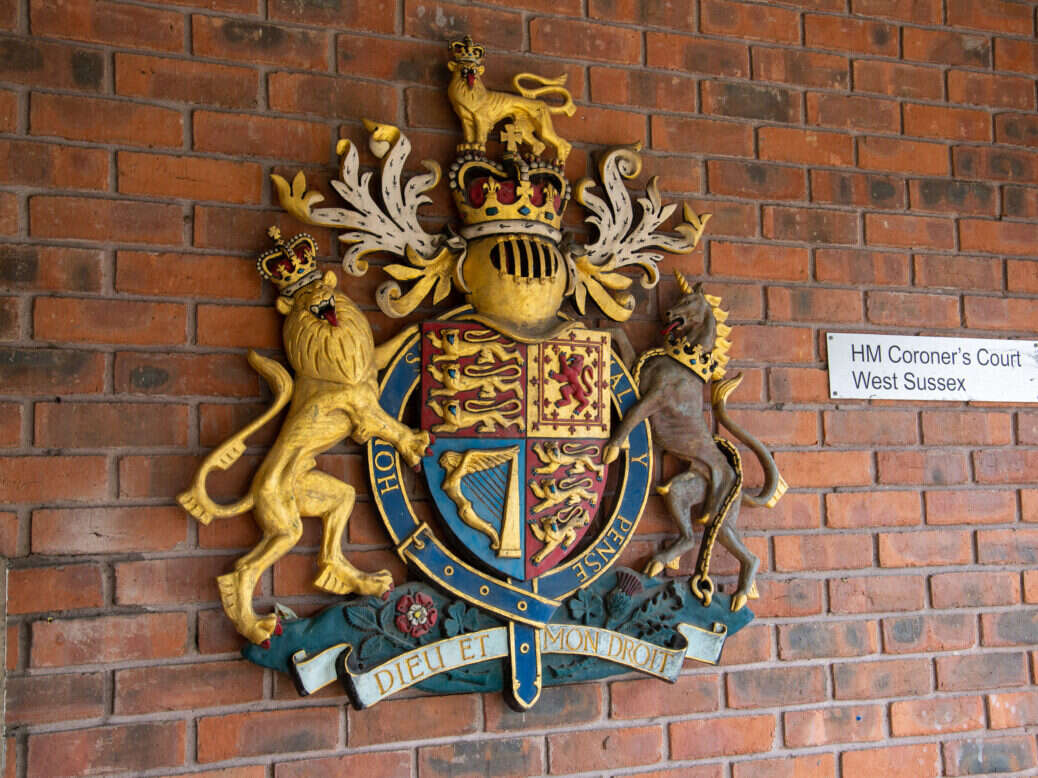
Journalists have slammed as “bizarre”, “frankly perplexing” and a “complete farce” rules that have banned them from following inquest hearings via video livestreams since the Covid-19 pandemic began.
Criminal and civil courts quickly adapted last spring with provisions under the Coronavirus Act 2020 allowing journalists and the public to access live video links to cover proceedings without sitting in court, helping prevent the spread of coronavirus.
However the same allowances were not made for coroner’s courts, with guidance from the Chief Coroner stating it is “unlawful to livestream any proceedings from a coroner’s court”.
The guidance added that it was “permissible to use audio only lines to enable public and/or press participation”.
Tristan Kirk, courts correspondent at the Evening Standard, described the differing rules between coroner’s courts and other parts of the judiciary as “frankly perplexing”.
He told Press Gazette that journalists had been forced to choose between attending hearings “in the midst of a public health crisis when the unequivocal word of government and doctors was to stay at home whenever possible” or trying to cover hearings “with the substandard benefit of an audio link”.
“The consequence of this, inevitably, is that reporters will cover less inquest hearings, opting to pursue stories where their safety is not being unnecessarily imperilled,” he said.
“It will be obvious to those who have attended a coroner’s court that the buildings are often old, sometimes lacking in ventilation, and generally not places you’d pick to sit for hours on end during a pandemic.”
[Read more: Journalists praise courts for remote open justice during coronavirus crisis]
Kirk raised concerns there had been “wild variation” in how coroner’s courts adopted the Chief Coroner’s guidance, with some sitting effectively in private as they could not get to grips with even the audio technology.
“Others have steadfastly refused to allow reporters access to the audio link to a hearing, even though one is in operation for parties to the inquest,” Kirk said. “More than one court I have dealt with, when asked to allow me to join via audio link, have said no, aware that would mean no media coverage of the inquest. It’s hard to square that kind of attitude with a desire for openness.
“In addition, I still find it hard to believe that last summer around 25 reporters were forced to attend a high-profile inquest in-person, even though every single witness was dialling to the hearing remotely, and the building we had to sit in was woefully inadequate in terms of preventing the transmission of Covid-19.”
Adela Whittingham, court reporter for Reach’s internal wire service which launched last summer, told Press Gazette that instead of relying on the audio she had asked to be accommodated in person wherever possible, “which hasn’t always been desirable or possible during the pandemic”.
She said audio links made it “almost impossible to discern who is speaking” and left journalists dependent on a sympathetic coroner to ask everyone to state their name before speaking.
“This potentially affects the ability to attribute quotes to the correct person for an accurate report,” she said.
In addition, journalists are largely unable to flag for attention when they need to make a legal representation or ask for a correct spelling of a name. Sometimes they could choose to do so verbally, but often they are placed on mute throughout.
A national newspaper reporter, who asked to remain anonymous, described the system as a “complete farce”, especially when video links in the criminal courts are working generally well.
They told Press Gazette they are currently covering a weeks-long hearing in which a barrister is dialling in via video link each day but the journalists are still forced to listen by phone.
“In this particular case there’s going to be some very important CCTV evidence which reporters won’t be able to actually see so you can’t report the hearing properly,” they said, describing this as an “artificial barrier” to journalism and detrimental for open justice.
“It’s good for us to see the witnesses, it’s easier to follow if you can see people as well as hear it, but if there’s visual film or pictures shown that you would normally be able to see if you’re sitting in the court hearing with an inquest you can’t do that now.
“It just seems a bureaucratic nonsense that reporters should be able to hear but not see when the facility to allow us to watch the court is there and being used by lawyers who are not also in the courtroom themselves.”
However change is on the horizon as the Police, Crime, Sentencing and Courts Bill currently going through the Commons will bring coroner’s courts into line with other jurisdictions and give them all permanent powers to livestream hearings after the Covid-19 pandemic has ended.
Kirk said: “The fact the coroner’s courts were left behind during the pandemic is approaching a national embarrassment. It is to be hoped the PCSC Bill will go some way to rectifying this position.
“The affronts to open justice were allowed to occur should give those in charge significant pause for thought. Perhaps it is finally time to create a centralised coronial system, with standardised procedures, that is fit for purpose in the 21st century.”
Picture: Shutterstock
Email pged@pressgazette.co.uk to point out mistakes, provide story tips or send in a letter for publication on our "Letters Page" blog
